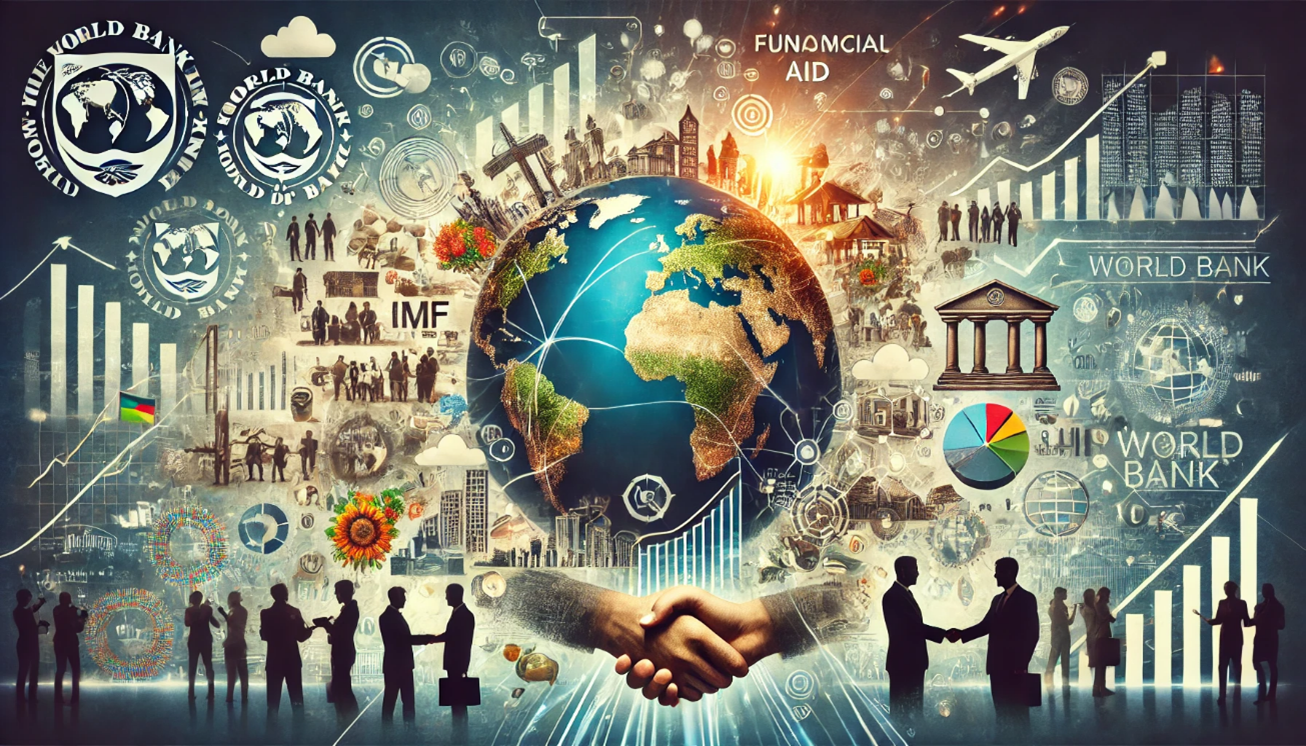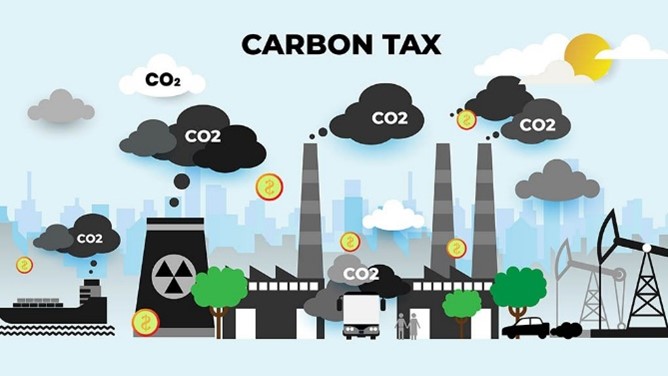How do organizations like the IMF and World Bank support economic stability

How do organizations like the IMF and World Bank support economic stability
by Nathaniel 11:16am Jan 11, 2025

How do organizations like the IMF and World Bank support economic stability
Organizations like the International Monetary Fund (IMF) and the World Bank play critical roles in ensuring global economic stability. They provide financial support, policy advice, and capacity-building to help countries address economic challenges, reduce poverty, and promote sustainable development. Here's a more detailed explanation of how these institutions support economic stability:
1. Providing Financial Assistance in Times of Crisis
IMF:
Lending Programs:The IMF provides short-term financial support to countries facing balance of payments crises when a country cannot pay for its imports or service its external debt. The IMF helps stabilize these economies by providing loans to meet immediate funding gaps.
Conditionality:IMF loans typically come with conditions (called"conditionality") that require countries to implement economic reforms such as austerity measures, fiscal adjustments, and structural reforms. These reforms are designed to restore economic balance, reduce inflation, and boost investor confidence, leading to greater economic stability.
Surveillance and Early Warning Systems: The IMF monitors global economic developments and assesses risks to economic stability. Through its surveillance role, the IMF provides early warnings about financial imbalances, exchange rate issues, and unsustainable debt levels, helping countries take preventive action before crises erupt.
World Bank:
Development Loans and Grants: The World Bank provides long-term financing to developing countries for projects aimed at promoting economic growth and poverty reduction. These projects may focus on infrastructure (e.g., roads, schools, hospitals), education, agriculture, and public health each contributing to the country’s broader economic stability.
Post-Crisis Recovery:After natural disasters, conflicts, or economic shocks, the World Bank provides funding for rebuilding and restoring key services. This can include rebuilding infrastructure, supporting vulnerable populations, and strengthening institutions, all of which contribute to restoring stability after a crisis.
2. Providing Technical Assistance and Policy Advice
IMF:
Economic Policy Advice: The IMF provides policy advice to member countries on various aspects of macroeconomic management. This includes fiscal policy (government spending and taxation), monetary policy (managing inflation and interest rates), exchange rate policy, and financial sector stability. The goal is to create an environment conducive to stable growth, low inflation, and sustainable fiscal policies.
Capacity Building:The IMF offers technical assistance to countries to strengthen their economic institutions. For instance, the IMF helps central banks develop better mechanisms for controlling inflation, builds capacity for public finance management, and assists with improving statistical systems for data-driven decision-making.
Training and Knowledge Sharing: The IMF conducts workshops, training programs, and conferences to share best practices with policymakers and central bankers from around the world. This helps enhance global economic governance and strengthens the institutional capacity of countries to manage their economies more effectively.
World Bank:
Policy Design and Reform: The World Bank advises governments on policy reforms in areas such as education, healthcare, governance, taxation, and environmental protection. For instance, the World Bank helps countries design tax systems that are equitable and efficient, which can increase revenue and ensure financial stability.
Institutional Capacity Building: The World Bank strengthens national institutions to ensure effective governance and service delivery. This includes improving the functioning of ministries, public sector agencies, and local governments, thereby ensuring that the country’s policies are implemented effectively and that public resources are used efficiently.
3. Promoting Long-Term Development and Poverty Reduction
IMF:
Structural Reforms for Growth: The IMF often recommends structural reforms aimed at making the economy more resilient in the long term. This includes liberalizing trade, privatizing state-owned enterprises, improving the legal and regulatory environment, and enhancing market efficiency. These reforms can increase economic productivity, attract foreign investment, and reduce dependency on external support, ultimately contributing to greater stability.
Inclusive Growth:By promoting policies that encourage inclusive growth, the IMF helps reduce income inequality and supports the building of stronger middle classes. This fosters social stability and reduces the risks of economic shocks caused by social unrest or political instability.
World Bank:
Inclusive Development: The World Bank focuses on poverty reduction, and its projects often aim to provide access to essential services, such as education, healthcare, and clean water. By improving these basic services, the World Bank helps raise the standard of living and economic security of the population, especially the most vulnerable.
Sustainable Development: The World Bank supports projects that promote environmental sustainability, such as renewable energy, sustainable agriculture, and water management. These projects help countries avoid environmental degradation, which could lead to economic instability, and instead foster stable, long-term growth.
4. Supporting Global Financial Stability
IMF:
Global Economic Surveillance: The IMF monitors the global economy and assesses potential risks to financial stability. Through its "World Economic Outlook" and "Global Financial Stability Report," the IMF provides analysis and forecasts of global economic trends, helping countries adjust their policies to avoid crises.
Emergency Financial Assistance: In the event of a global or regional financial crisis, the IMF can provide emergency lending to countries in distress, often in coordination with other international institutions. This support helps stabilize exchange rates, financial markets, and the broader economy, mitigating the spillover effects of crises.
Policy Coordination:The IMF fosters cooperation among its member countries by promoting policy coordination to address global issues such as trade imbalances, debt crises, and systemic risks to the global financial system. Through multilateral discussions, the IMF helps manage global financial shocks and reduce the risk of contagion.
World Bank:
Global Infrastructure Investment: The World Bank funds large-scale infrastructure projects such as highways, ports, and airports, which enhance the global supply chain and facilitate trade. This helps reduce economic volatility by improving the efficiency and resilience of the global economy.
Financial Markets and Capital Flows: The World Bank promotes financial sector stability in developing countries by supporting the development of sound banking systems, enhancing access to capital markets, and encouraging foreign investment. This contributes to the global financial system's resilience and stability.
5. Reducing Debt Vulnerability
IMF:
Debt Sustainability Analysis: The IMF provides countries with debt sustainability assessments to ensure that they can service their debt without compromising long-term economic stability. If a country faces excessive debt, the IMF helps negotiate restructuring or provide financial support to avoid default.
Debt Relief Initiatives: The IMF, in coordination with the World Bank, has been involved in debt relief initiatives such as the Heavily Indebted Poor Countries (HIPC) Initiative, which provides debt reduction for the world’s most impoverished nations, helping them stabilize their economies and prioritize development.
World Bank:
Debt Restructuring:The World Bank also assists countries in restructuring their debt, ensuring that repayment terms are manageable and that they do not hinder economic recovery. This includes coordinating with international creditors and restructuring arrangements to ease debt burdens on vulnerable countries.
Conclusion
In essence, the IMF and World Bank provide a comprehensive approach to economic stability. The IMF focuses on short-term financial stability, fiscal management, and global surveillance, while the World Bank emphasizes long-term development, poverty reduction, infrastructure investment, and building resilient economies. Both institutions work together to prevent crises, promote sustainable development, and strengthen the global financial system, ensuring that countries are better prepared to handle economic shocks and maintain stability over time.






